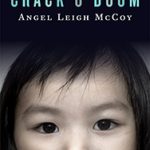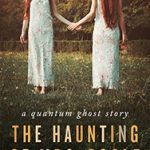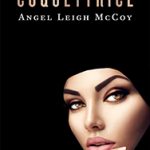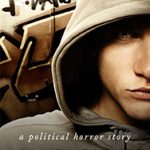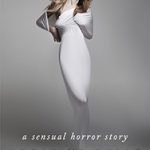Nathan Crowder has been affiliated with Wily Writers since its inception. His influence helped guide the group and the e-zine. He’s such a talented writer, now turned editor and publisher, that I was honored to include his short story “Ink Calls to Ink” in the Night-Mantled: Best of Wily Writers anthology.
I hope you enjoy this interview I did with him.
What made you become a writer?
I think that at some point in their life most kids latch on to what excites and inspires them. Be it firemen, pilots, athletes, they feel some tingle and think, “I want to be that when I grow up!” I was kind of a weird, quiet kid. I read a lot, so what inspired and excited me were the stories I was exposed to. By reading, my whole world opened up. I realized early on that I couldn’t be Robin Hood or one of the Swiss Family Robinson kids, but as a writer, I could be all that and more. Writing became my way to capture that excitement I got from other people’s stories, take it apart to see what made it tick, and put everything back together in a way that other people might enjoy. And maybe, on a good day, one of my stories might be able to open up the world for someone else.
What kinds of stories do you prefer to write? Why?
I tend to identify with the normal people in extreme circumstances, whether those normal people are under-employed shoe-making elves, down-on-their-luck fairy tales, video editors just looking for a paycheck, or superheroes with relationship difficulties. As long as I can find a core of character to anchor a story, I’m equally happy writing mysteries, westerns, horror, urban-fantasy, or space opera. I’m a big fan of giving voice to minority characters as well. This is a multi-ethnic, multi-cultural world we’re living in, and if I was writing from the same middle-aged, lower-middle-class white guy perspective all the time it would bore the everlovin’ crap out of me. So I mix it up, and I try to be as true to those voices as I can. The only thing I can’t see myself writing is “Literary Fiction.” I’m happy it’s out there. Everyone has their thing. But it isn’t something I read, so it isn’t anything I can see myself trying to write.
What was the most helpful advice someone ever gave you about writing?
I learned this from my editor and dear friend Caroline: pay attention to the physical world. I think this applies both as a writer and as a human being. It’s so easy to go through life with blinders on, not realizing that the cherry trees are budding, or starlings are swarming in these terrfying clouds of feathers and beaks, or that same homeless guy in the wheel chair is there EVERY single afternoon. The world is made up of tiny details everywhere. By grounding the character in a world with a rich variety of senses (scent, in particular, is a good one not to overlook), we make the environment they move around in more real. Plus, paying attention to the little details in our own lives makes not only for richer fodder for stories, but it also helps foster an appreciation for the world around us.
What’s the one thing you want people to know about your story in Night-Mantled?
This was just supposed to be a single story, a weird little idea brewed up about fictional characters suddenly dropped into the modern world, unable to cope. I think there was a joke about Winnie the Pooh mauling Christopher Robin in amongst my early ideas, as well as Mary Poppins, super-spy! But in the end, I settled on this little tale of literary refugees in London where there was no more happily ever after. Upon recording it for the Wily Writers podcast, Angel suggested that this would make the seed for a great novel. I thought she was crazy. But I work well with crazy. I had a novel outline done in two weeks, and just finished my first draft in November 2010. I’m prouder of that novel than any long piece I’ve ever written, and I can hardly wait for it to get unleashed in the world.
What does your family think of your writing?
My dad was proud of my pursuing my passion, and I really wish he had lived long enough to see me get good at it. My mom, well, she’s too hyper-kinetic to sit down and read much, so I don’t think she really understands what it is I do, or how I do it. But she loves it in the way moms are supposed to support their kids’ crazy talents. My kids on the other hand, they seem to really dig it. I’ve written both of them into at least one novel, and they’ve read just about everything I’ve written. And the family of kindred spirits I’ve adopted in the past several years are extremely supportive. It helps to have people you love in your life who realize that oftentimes the writing comes before them.
What do you think about the trend toward multimedia storytelling (audio and/or video recordings of stories being read)?
I’ve frequently thought of myself as a storyteller first and a writer second. Just about everything I write is done through the lens of “How does it sound out-loud?” And while I love doing public readings, not everyone can make it to one of Seattle’s scattered neighborhoods on a rainy Saturday night. Multimedia storytelling alows writers with far-flung fanbases to become STORYTELLERS with far-flung fanbases. It’s one of the things I love so much about working with Wily Writers, and why I’m always eager to read for them. It’s a huge part of why my own publishing company (Timid Pirate Publishing) started producing audio-drama podcasts. Any way you can deliver a story into someone’s head, I’m happy to take a whack at it.
What do you think of the trend toward e-books and away from paper books?
Paper books aren’t going anywhere. The model with which they’re currently being published is long overdue for a change, but as long as there’s someone with a hand-cranked type-set press and a story to tell, there are going to be books. As for e-books, I love the convenience. I moved last year and had to donate a tremendous number of books to a bookdrive just to get rid of them. Once read, most books will just sit on my shelf and collect dust. So having them sit on a hard drive somewhere makes so much more sense, both for me and the environment. My biggest complaint is how it changed the ease of loaning your favorite book to a friend, but I imagine that change is just around the corner.
Which authors have influenced your writing the most?
I think I got a dash of whimsy and inspiration from Ray Bradbury, some cynical voice from Harlan Ellison, pacing and world building from Tim Powers, dialogue from Harlen Coben and Joe Lansdale, and a sense of the modern mythic from Neil Gaiman. Lansdale, in particular, showed me to write whatever the hell I wanted to write and let the market sort it out. I love him for that, and if you haven’t read him yet, you really should. I sincerely owe each and every one of these guys a drink.
![]() Nathan Crowder is an award-winning writer of fiction with southwest roots, currently living in the rainy Pacific Northwest. A certified coffee and micro-brew aficionado, he is a gregarious and happy guy who can see the silver lining in any cloud, though this is rarely reflected in his writing.
Nathan Crowder is an award-winning writer of fiction with southwest roots, currently living in the rainy Pacific Northwest. A certified coffee and micro-brew aficionado, he is a gregarious and happy guy who can see the silver lining in any cloud, though this is rarely reflected in his writing.
His fiction has ranged across many genres, but he is generally happiest in the urban fantasy, horror, mystery, or super-hero arena. A life-long geek for social justice, history, sociology, architecture, film, and music, Nathan has a special interest in how public and shared art reflects culture and community.
He is the proud author of the Cobalt Universe super-hero adventure novels, including Greetings from Buena Rosa, Ride Like the Devil, Cobalt City Blues, and the upcoming Chanson Noir.
You can check out his latest projects on his website.






